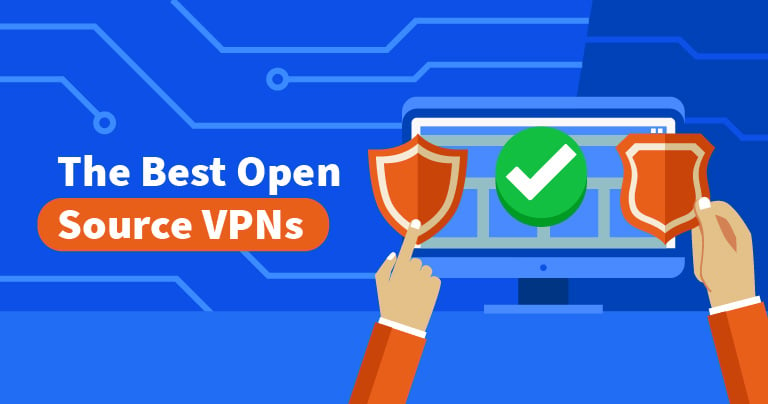In today’s digital age, online privacy is crucial. Open source VPNs offer a great way to secure your internet connection.
Open source VPNs are popular for their transparency and community-driven development. Unlike proprietary software, you can inspect and modify the code yourself. This makes them a top choice for tech enthusiasts and privacy advocates. With so many options available, finding the best one can be a challenge.
This guide will help you understand the top open source VPNs, so you can choose the right one for your needs. Whether you want to protect your data, access restricted content, or ensure safe browsing, these VPNs have you covered. Let’s dive into the world of open source VPNs and find the best fit for you.
Overviews of Contents
ToggleIntroduction To Open Source Vpns
Virtual Private Networks (VPNs) protect your online privacy. They create a secure, encrypted connection over the internet. Open Source VPNs offer transparency and security. Let’s explore what makes them special.
What Is An Open Source Vpn?
An Open Source VPN is a VPN whose source code is publicly available. Developers and users can see, modify, and share the code. This ensures the software is secure and free from hidden backdoors.
Open Source VPNs are built by communities. These communities prioritize user privacy and security. Some popular examples include OpenVPN and WireGuard.
Need to understand more about VPN? This post might help you. The Best Free VPNs for Torrenting: Secure and Fast Options
Why Choose Open Source?
Choosing an Open Source VPN has several advantages:
- Transparency: You can review the code yourself. This ensures there are no hidden vulnerabilities.
- Security: Community reviews and updates fix issues quickly.
- Customizability: Modify the software to meet your needs.
- Cost-effective: Most open-source VPNs are free to use.
Open Source VPNs are a solid choice for anyone valuing privacy and security. With a community-driven approach, these VPNs offer robust protection. Explore the best options and enjoy a safer online experience.
Top Open Source Vpn Options
Finding the best open source VPN can be a daunting task. Open source VPNs offer transparency and security. These options are reviewed by many, ensuring bugs and vulnerabilities are caught quickly. Here are the top open source VPN options for you.
Openvpn
OpenVPN is a trusted choice for many users. It is highly configurable and supports a wide range of encryption protocols. This VPN is compatible with most operating systems, including Windows, macOS, and Linux. OpenVPN uses SSL/TLS for key exchange, providing top-notch security. Its community support is robust, offering a wealth of resources for troubleshooting and setup.
Wireguard
WireGuard is gaining popularity due to its simplicity and speed. It is designed to be easier to deploy than other VPNs. WireGuard uses cutting-edge cryptography, ensuring secure connections. It is lightweight, resulting in faster performance and reduced overhead. The codebase is smaller, making it easier to audit and maintain. WireGuard is available on multiple platforms, making it versatile for various users.
Expand your knowledge about VPN with this article. Best Vpn for Japan: Unlock Fast, Secure, and Private Browsing
Features To Look For
When selecting the best open source VPN, certain features stand out. These features ensure the VPN is secure, user-friendly, and efficient. Below, we explore key elements to consider.
Security Protocols
Security is crucial for any VPN. Look for VPNs that support strong security protocols. OpenVPN and WireGuard are popular choices. These protocols offer robust encryption. They protect your data from prying eyes. Avoid VPNs with outdated or weak protocols.
Ease Of Use
A good VPN should be easy to use. The interface should be intuitive. Even beginners should navigate it with ease. Check if the VPN offers clear instructions. User-friendly VPNs save time and reduce frustration. Look for VPNs with good customer support. Help should be available if you need it.

Credit: www.wizcase.com
Installation And Setup
Setting up an open source VPN can seem daunting at first. With the right guidance, it becomes manageable. This section covers the installation and setup process. Follow these steps to get your VPN up and running smoothly.
Step-by-step Guide
First, choose the right open source VPN software. Popular options include OpenVPN, WireGuard, and SoftEther. Download the installation file from the official website.
Next, install the software on your device. For OpenVPN, you can use the following command in your terminal:
sudo apt-get install openvpnAfter installation, configure the VPN. Download the configuration files from your VPN provider. Place these files in the appropriate directory, usually /etc/openvpn/.
Then, start the VPN service. Use the command:
sudo systemctl start openvpn@your-config-fileFinally, verify the connection. Check your IP address to ensure it has changed.
Curious about VPN? We've got more info in this linked article. Private Internet Access Vs Surfshark: Ultimate VPN Comparison
Common Installation Issues
One common issue is a missing dependency. Ensure all required packages are installed. Use the command:
sudo apt-get install -fAnother issue is incorrect configuration files. Double-check the file paths and names. Ensure they match the VPN provider’s instructions.
Connection errors can also occur. Verify your internet connection. Restart the VPN service if necessary:
sudo systemctl restart openvpn@your-config-fileIf issues persist, consult the VPN software’s documentation. Many common problems have simple fixes. Stay patient and methodical.
Performance And Speed
When selecting the best open source VPN, it’s essential to consider performance and speed. A VPN should not only protect your privacy but also ensure fast and stable connections. This section will explore speed tests and optimizing performance to help you choose wisely.
Speed Tests
Speed tests are crucial for evaluating a VPN’s performance. They help measure how much a VPN impacts your internet speed. Here are some key points to consider:
- Download Speed: This is the rate at which data is transferred to your device.
- Upload Speed: This is the rate at which data is sent from your device.
- Latency: This is the delay before a transfer of data begins following an instruction.
It’s essential to test the VPN under different conditions. This includes various times of the day and different server locations. Use online tools like Speedtest.net or Fast.com to measure performance.
Expand your knowledge about VPN with this article. Nordvpn Vs Expressvpn: Which VPN Reigns Supreme in 2025?
Optimizing Performance
To get the best performance from your open source VPN, follow these tips:
- Choose the right server: Select a server close to your location for faster speeds.
- Use wired connections: Ethernet cables provide more stable connections than Wi-Fi.
- Limit background apps: Close unnecessary applications that consume bandwidth.
- Update VPN software: Ensure you’re using the latest version for optimal performance.
- Test different protocols: Experiment with VPN protocols like OpenVPN or WireGuard for better speeds.
Optimizing your VPN settings can significantly improve your experience. Regularly test and adjust to maintain high performance.
Privacy And Security
Privacy and security are essential when using a VPN. The best open source VPNs ensure that users’ data remains private and secure. They use advanced encryption and follow strict no-logs policies. This section will explore these aspects in detail.
Encryption Standards
Encryption is the backbone of VPN security. The best open source VPNs use strong encryption standards. AES-256 is the most common and trusted. It is nearly impossible to break. OpenVPN and WireGuard are popular protocols that use this encryption. They ensure your data remains safe from prying eyes.
No-logs Policy
A no-logs policy means the VPN does not store user data. This is crucial for privacy. The best open source VPNs are transparent about their logging policies. They do not keep records of your online activities. This ensures your browsing history remains private. Always check the VPN’s privacy policy. Ensure they have a strict no-logs policy.
Community Support And Updates
The best open-source VPNs offer a range of benefits. One of the biggest advantages is the strong community support and regular updates. These features ensure the VPN remains secure, efficient, and user-friendly. In this section, we will explore the importance of community support and updates.
Active Communities
Open-source VPNs thrive due to active communities. These communities consist of developers, users, and enthusiasts. They engage in forums, discussion boards, and social media groups.
Active communities provide:
- Quick problem-solving
- Helpful tips and tutorials
- Feedback for developers
- Collaboration on new features
For example, the OpenVPN community is vibrant. Members contribute to code, share experiences, and offer support. This collective effort improves the software continuously.
Regular Updates
Regular updates are crucial for maintaining security. Open-source VPNs often receive frequent updates from developers. These updates address bugs, enhance features, and improve performance.
Benefits of regular updates include:
- Enhanced security
- Bug fixes
- New features
- Optimized performance
For instance, WireGuard receives regular updates. Each update enhances its security and efficiency. Users can trust that their data is protected with the latest security protocols.
| VPN | Community Activity | Update Frequency |
|---|---|---|
| OpenVPN | High | Monthly |
| WireGuard | Moderate | Bi-Monthly |
| SoftEther | High | Quarterly |
As seen in the table, OpenVPN and SoftEther have high community activity. This leads to more frequent updates and better support. WireGuard, while newer, also maintains a solid update schedule.
In summary, the strength of open-source VPNs lies in their communities and regular updates. These elements ensure users enjoy a secure, reliable, and evolving VPN experience.

Credit: www.vpnmentor.com

Credit: solutionsreview.com
Frequently Asked Questions
What Is An Open Source Vpn?
An open source VPN is software with publicly accessible code. Users can inspect, modify, and improve it.
Why Use Open Source Vpns?
Open source VPNs offer transparency and security. Users can verify the absence of backdoors or vulnerabilities.
Are Open Source Vpns Free?
Most open source VPNs are free to use. They rely on community contributions and donations for support.
How To Choose The Best Open Source Vpn?
Check for security features, user reviews, and community support. Ensure it meets your privacy needs.
Conclusion
Choosing the best open source VPN can enhance your online security. They offer transparency and flexibility. Explore options, try a few, and see which fits your needs. Privacy matters, and a reliable VPN helps protect your data. Stay safe while browsing.
Invest time to find the right solution. Your online safety is worth the effort.




